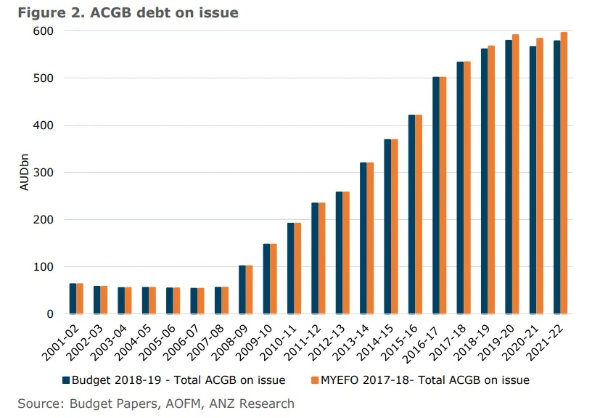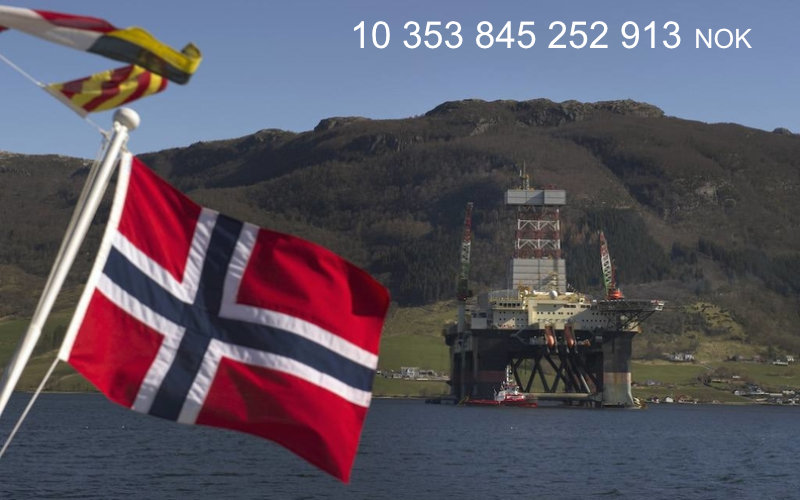An obsession with “balancing the budget” has left Australia under-funded despite its immense wealth. A dual citizen of Norway and Australia, Kim Wingerei laments the lost opportunity of a century, the failure of our political classes to establish a sovereign wealth fund. But it’s still not too late to stop the flood of our natural resources overseas.
Lang Hancock flew over the Pilbara in 1952, identified iron ore sites and took possession, making him and his descendants some of the richest people on the planet. When Phillips Petroleum found oil and gas in the North Sea in the late sixties, they had to acquire licensing rights from the Norwegian government to extract it, making the country the richest in the world.
In Norway this principle was a legacy of hydroelectric power plants built in the late 19th century, which established once and for all that the land (and by extension the continental shelf) belongs to the nation, and the government grants licence for its use for the benefit of the people.
It was never a source of entrenched or lengthy debate. Nor was the establishment of the Norwegian Sovereign Wealth Fund, now worth $1.5 trillion (NOK 10,353,845,252,913 on June 9th, to be exact). Not bad for a country of just over five million. The fund was set up not only to shield the Norwegian economy from becoming too dependent on income from fossil fuels, but to fund future generations when the oil wells dry up and the gas pipes run empty.
In a time of crisis, it is also there to help balance the budget.
Australia’s “FutureFund” is neither as large ($162.6 billion on June 30th, 2019), nor does it serve the same purposes, designed primarily to cover the shortfall of the Government’s superannuation liabilities. It plays no role in the current financial crisis in which Australia finds itself.
Our FutureFund is in many ways symptomatic of the way Australia’s economy has been managed for the past decade, seemingly forever on the back foot, perennially under-funded with Government debt increasing every year since it reached $100 billion in 2009. By the end of the year it is likely to exceed $600 billion.

But contrary to the political rhetoric, the debt itself is not the problem, it is the lack of long term planning, fear of meaningful reform and the endless tug-of-war between the States and the Federal Treasury that all conspire to make economic and fiscal policy in Australia a zero-sum game.
As interest rates continue to hover just above zero with unemployment sharply on the increase, the Government has painted itself into a fiscal corner with monetary policy no longer an effective lever on the economy.
With few exceptions, every budget is seen through the eyes of cost cutting. Policy decisions are mostly made based on cost and not on benefit. Our hospitals are under-funded, public schools are under-funded, our universities gouging on foreign students to make ends meet; the NDIS is under-funded, unemployment benefits are insufficient, support programs for our long suffering indigenous peoples see cuts every year, as do the arts.
The last twenty years of Australian economic policy has also seen a slow but systematic dismantling of what limited social support networks that were in place. All in the name of “balancing the budget” – the ever present mantra of politicians and economists alike.
And this, in a country where over the same period, Mining, Oil and Gas had export revenues of $2.3 trillion. A mere 5% of that set aside for the collective good of the country would today have been worth $259 billion (using the same return on investment as the Norwegian Sovereign Fund of 6%.) Added to the $160 billion of the FutureFund, that would have been a nice financial cushion to fall back on during these times.
The mining magnates and the multinationals would no doubt scream blue murder, as they did when Rudd tried to introduce the mining “super profit” tax back in 2012. A stronger Government, prepared to stand up to the monied interest, not afraid to lose donations and arguing clearly on the principle of the people’s ownership may have been able to make it happen. But sadly, we haven’t had any such Government for a very long time.
Australia is one of the richest countries in the world, with a GDP of $1.89 trillion in 2019 and an annual pre-COVID Federal Government spend of $493 billion this financial year. Yet we were completely unprepared for a crisis of this magnitude, having to put in place immediate relief programs to cope with unemployment and the inevitable reduction in tax income from businesses of all kinds struggling with the effects of the lock-down. Programs that can only be funded by even more debt.
In contrast, all the Nordic countries and many of the better managed countries in Europe already had these programs in place when the crisis hit. Unemployment benefits in Denmark is up to 90% of your previous income, payable for up to two years. It is also available to people with reduced working hours. Sweden, Norway, Germany, France and Italy all have similarly generous schemes. Both Holland and Finland are well advanced on testing the benefits of universal income.
Norway, Finland, France, Germany and Sweden have either free or heavily subsidised education for all. These and many other European countries, including the UK, have free or almost free public health.
Much of this is taken for granted and have been in place for a long time. They are integral to societies which are more culturally geared to look after its citizens. We have a long way to go in Australia. Our chequered history of stop/start reforms have left us with a broken tax system where too many companies pay little or no tax and tax evasion is a sport. Our education sector is stuck in a time warp of inadequate funding and social services is an absolute mess as so grotesquely revealed by the Robodebt debacle.
In times of crisis, we effectively have no savings, our support systems are not set up to cope even with a mild recession, workers rights have been eroded for decades by draconian workplace relations legislation. And the real wages of teachers, health and social support workers and other pillars of our community continue to decline.
And much of this because we have a political class – especially within the Canberra bubble – unable to see the big picture, afraid to make real changes, unwilling to plan for the long term and entirely focused on the wrong side of the ledger.
Despite the loss of opportunity however, the billions frittered away from inaction and political cowardice, it is still not too late to establish a sovereign wealth fund to protect future generations. When talking about “balancing the budget”, politicians are fond of invoking “the grandchildren” and “our grandchildren’s grandchildren”. It remains in their power alone to strike a blow for these oft-mentioned grandchildren.
Australia needs a sovereign wealth fund like Norway for the next boom – electrification
Kim Wingerei is a businessman turned writer and commentator. He is passionate about free speech, human rights, democracy and the politics of change. Originally from Norway, Kim has lived in Australia for 30 years. Author of ‘Why Democracy is Broken – A Blueprint for Change’.

